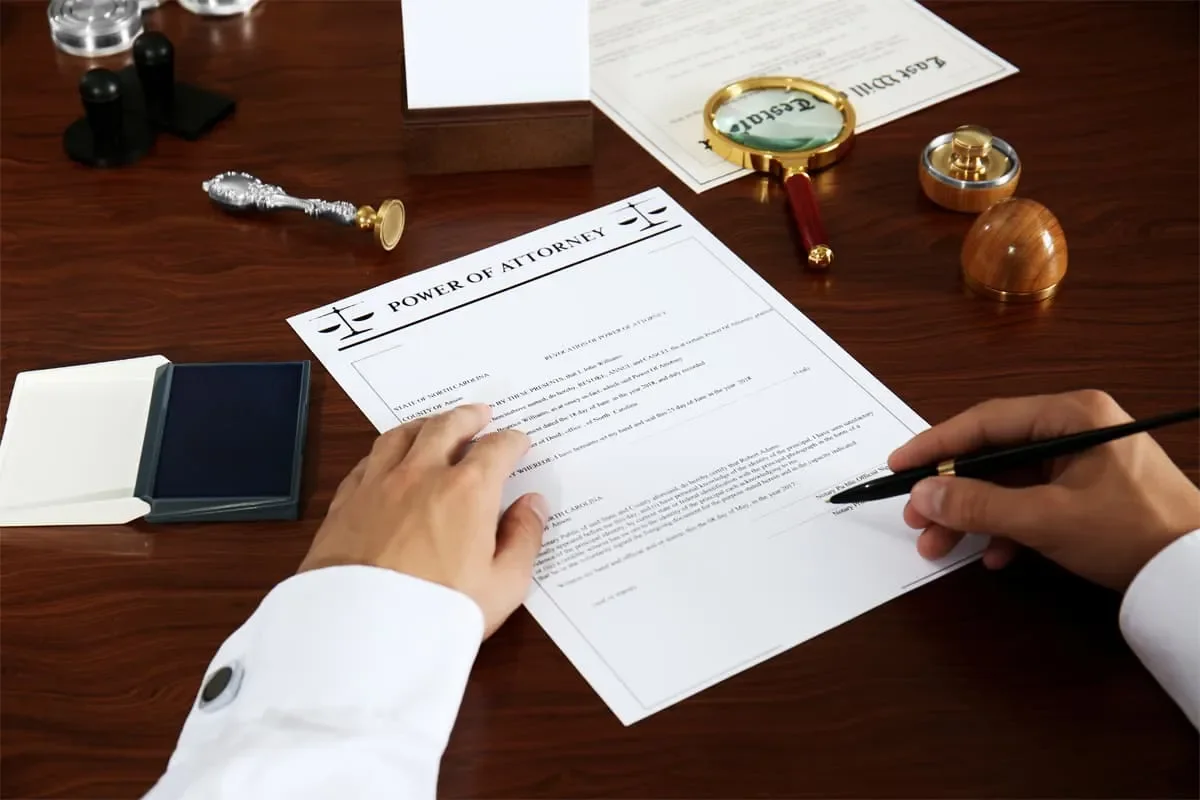Power of Attorney Documents that Require Notarization and Witnesses
A Power of Attorney (POA) is an essential legal document that grants someone the authority to act on behalf of another person, referred to as the principal. POAs are vital in many situations, such as managing finances, making healthcare decisions, or handling real estate matters. However, not all POAs are the same. Some require notarization and witnesses to ensure their validity. This article will explore the different types of POA and their specific requirements regarding notarization and witnesses. For assistance with the notarization process, consider using notary services.
1. General Power of Attorney (GPOA)
A General Power of Attorney is a broad legal document that gives an agent the authority to act on behalf of the principal in a variety of situations. This could include managing finances, making legal decisions, and handling everyday affairs.
In most cases, a General POA may not require witnesses, and notarization alone may be sufficient. However, it's important to note that requirements can vary depending on the jurisdiction. Some areas may require witnesses to validate the document. It’s always recommended to consult local laws to ensure the POA meets all legal standards.
2. Durable Power of Attorney (DPOA)
A Durable Power of Attorney remains effective even if the principal becomes incapacitated or unable to make decisions. This type of POA is commonly used for long-term care or medical decisions.
Whether a Durable POA requires witnesses depends on the laws of the jurisdiction. Typically, Durable POAs may require both witnesses and notarization to be considered valid. Always confirm the specific requirements in your area to ensure compliance.
3. Limited or Special Power of Attorney (SPOA)
A Limited or Special Power of Attorney grants specific, limited powers to an agent, such as the ability to sell property or make specific financial decisions on behalf of the principal.
Witness and notarization requirements vary depending on the jurisdiction. In many cases, Limited POAs only require notarization, while some jurisdictions may also require witnesses to confirm the validity of the document.
4. Medical Power of Attorney (MPOA)
A Medical Power of Attorney allows the principal to appoint someone to make healthcare decisions on their behalf if they become unable to do so. This is essential for ensuring that medical decisions are made according to the principal's wishes when they cannot communicate them directly.
MPOAs generally require both witnesses and notarization to be legally binding. This ensures that the document reflects the principal’s true intentions and is legally accepted by healthcare providers and other institutions.
5. Financial Power of Attorney (FPOA)
A Financial Power of Attorney grants an agent the authority to manage the principal’s financial matters, including handling bank transactions, signing contracts, and managing property.
While most jurisdictions require witnesses for the Financial POA, notarization is also highly recommended to confirm the document’s authenticity. Legal advice is crucial to ensure that the document meets local regulations.
6. Real Estate Power of Attorney (REPOA)
A Real Estate Power of Attorney is a document that grants an agent the ability to make decisions regarding real estate transactions on behalf of the principal. This could include buying, selling, or leasing property.
The requirements for witnesses and notarization depend on the jurisdiction. In many cases, notarization is required, and witnesses may also be necessary to confirm the validity of the document.
Benefits of Notarization and Witnessing
Enhanced Legitimacy: Notarization ensures the authenticity of the document, while witnesses provide additional confirmation of the principal’s identity and consent.
Fraud Prevention: Notarization and witnesses help safeguard against fraud by providing a clear record of the document’s execution and the principal’s intent.
Institutional Acceptance: Many financial institutions, healthcare providers, and other organizations require notarized and witnessed POAs to be accepted as valid legal documents. To ensure proper notarization, you can rely on notary services to handle the process efficiently.
Conclusion
Understanding the different types of Power of Attorney and their requirements for notarization and witnesses is essential for ensuring that these documents are legally effective. While some POAs, such as General or Financial POAs, may not require witnesses, others—such as Medical or Real Estate POAs—commonly require both notarization and witnesses to ensure their validity.
Before creating a POA, it's crucial to consult with a legal professional to ensure that all necessary formalities are followed according to your jurisdiction’s regulations. By doing so, you can have peace of mind knowing that your legal and healthcare matters are in order, even in times of uncertainty or incapacity.

